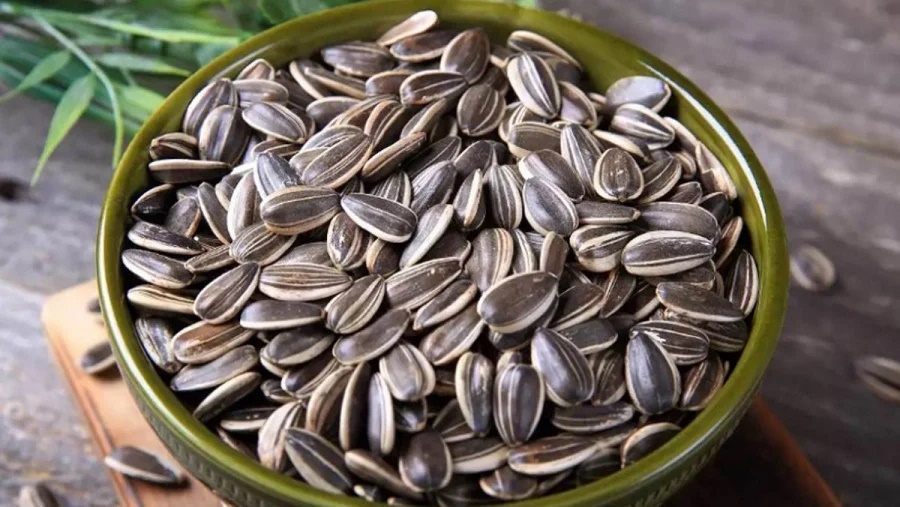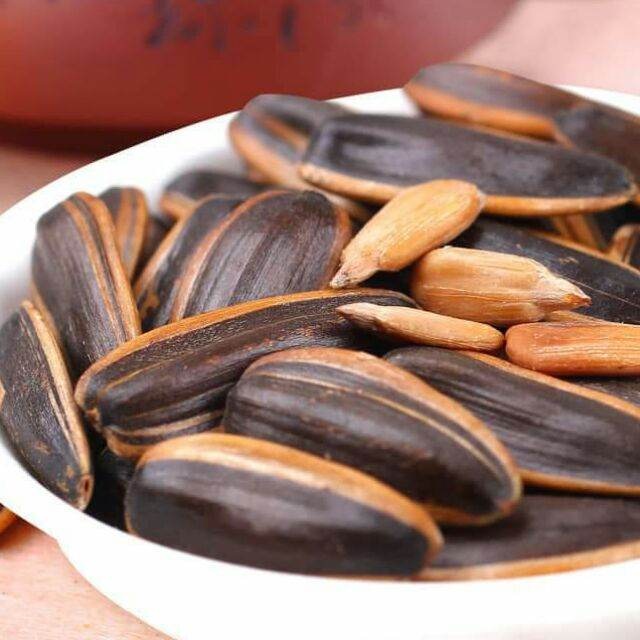1. Observe the Packaging
The first thing to consider when buying sunflower seeds is the product’s packaging. Always opt for seeds produced by reputable manufacturers with a well-known brand name. This ensures that the product is hygienic and safe for consumption. Avoid buying seeds without proper labeling, and instead, look for packages that clearly state the production location and distributor. Pay close attention to the listed food additives and expiration date. Expired sunflower seeds can develop mold and be harmful to your health.
In addition to domestically produced seeds, there are also imported options available. Feel free to choose according to your preference, but always prioritize safety and avoid compromising on quality for a cheaper price. Remember that sunflower seeds can quickly turn soggy when exposed to air, so carefully inspect the bag for any holes, tears, or punctures. This will ensure the seeds remain crisp and flavorful.

2. Assess the Physical Appearance
When it comes to sunflower seeds, opt for those with a natural color rather than overly vibrant or shiny hues. High-quality seeds will have a pleasant, subtle aroma, free from any sharp or overpowering scents. There is a noticeable difference in the appearance of domestic and imported sunflower seeds. Typically, imported seeds tend to be larger and thicker, while domestic seeds are smaller and thinner. However, despite their more attractive appearance, imported seeds may not match the flavor of their domestic counterparts. Therefore, choose based on your personal preference and the specific needs of your family.
When making your selection, look for seeds with evenly spaced ridges. The ideal seed has a rounded body that tapers towards the head. Avoid seeds with elongated bodies and shells that curve forward. Rounder seeds tend to be fuller and more flavorful, providing a more satisfying crunch when eaten.
3. Avoid Industrially Roasted Seeds
To ensure you purchase delicious and safe sunflower seeds, it’s important to know how to identify industrially roasted seeds. These seeds often have an overly smooth and shiny appearance, with some even feeling slightly rough to the touch.
To test, use your fingers to feel the shell or bite into a few seeds. If the seeds have an intense greasy taste or an unusual salty or sweet flavor, it’s best to avoid them. This may indicate the presence of preservatives or other additives.

4. Taste and Aroma
Sunflower seeds are rich in oil, making them susceptible to mold and fungal growth. This can lead to the production of harmful toxins, such as aflatoxin and ozchatoxin, which are carcinogenic. To ensure the seeds are safe, take a few seeds, remove the kernels, and chew them. Also, bring them close to your nose to detect any unusual odors. If the seeds taste bitter, strange, or have a strong, pungent aroma, it’s best to avoid them. Similarly, avoid seeds with a musty or moldy smell, as these indicate the presence of harmful fungi.
According to Cars and Sports





































